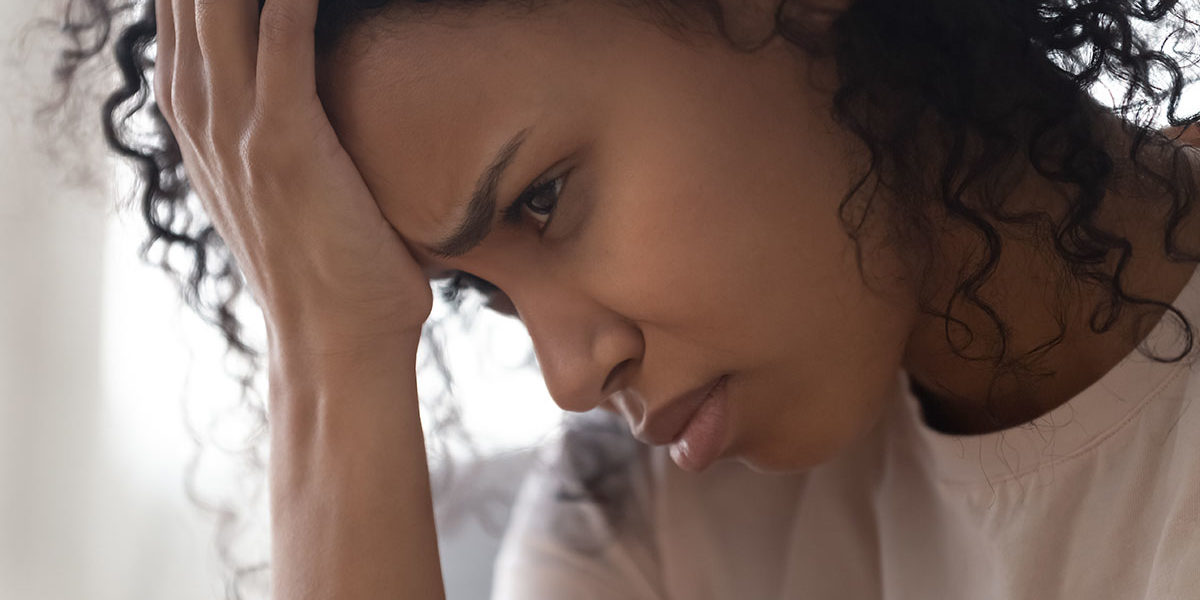Two of the most common mental health conditions in the world are anxiety and depression. While many people struggle with these illnesses, some do not know the difference between the two. The reason behind this odd fact is because roughly half of the people who receive a diagnosis of depression will also have an anxiety disorder. It is, therefore, essential for people to learn the difference between depression vs. anxiety. If you believe you have either depression or anxiety and need treatment, contact our women’s mental health center at Crossroads Maine.
Depression vs. Anxiety
Everyone feels sad or anxious from time to time. It’s a part of being human. If you’ve recently lost a family member or gone through a bad break-up, it’s natural for you to be a little down in the dumps. Similarly, if you’re about to go on a big date or if you have a presentation to give at work, you might be a little nervous. It’s when you’re feeling sad or anxious all time that this becomes a problem.
One thing that you need to know when determining whether you’re struggling with depression vs. anxiety is that these conditions are nothing to be ashamed of, despite the stigma. These are mental health disorders, and, much like any other disease, there is treatment available.
Depression
Depression is a common mental illness that adversely affects your feelings, thoughts, and actions. It can cause feelings of sadness, a loss of interest in activities that you used to enjoy, and lead to an inability to function at home and work.
The symptoms of depression look different in each person. However, some common symptoms to look for include:
- You feel sad or depressed for an extended period of time
- You’ve lost pleasure or interest in the hobbies you used to enjoy
- Your appetite has changed, leading to losing or gaining a significant amount of weight
- You have trouble sleeping
- You sleep too much
- You’ve lost energy and are always tired
- Your speech and movement has slowed
- You have started hand-wringing, pacing, or other physical activities with no purpose.
- You feel guilty or worthless
- Your ability to think, concentrate, or make decisions is reduced
- You have had thoughts of death or suicide
Anxiety
Anxiety disorders are different from the general feeling of anxiousness that appear in day to day life. This condition involves an excessive amount of anxiety or fear. There are several types of anxiety disorders, including generalized anxiety disorder, post-traumatic stress disorder (PTSD), and panic disorders. The symptoms surrounding most anxiety disorders include:
- Overwhelming panic, unease, and fear
- Problems sleeping
- Inability to stay still and calm
- Cold and sweaty hands or feet
- Numb or tingling hands feet
- Inability to catch your breath
- Dry mouth
- Increased heart rate or heart palpitations
- Nausea
- Dizziness
- Muscular tension
Whether you’re dealing with depression vs. anxiety, it is disrupting your life. Perhaps you’ve turned to drugs and alcohol to relieve your mental health symptoms. If that’s the case, it’s vital to get the treatment that you need so that you can begin to thrive, rather than succumb to life’s curveballs.
Learn More About Depression vs. Anxiety at Crossroads Maine
At Crossroads Maine, you can get the care and treatment that you need to recover from your mental health condition. With the help of our exceptional treatment programs, you can get the diagnosis you need, so you know whether you’re dealing with anxiety vs. depression or both. More importantly, however, you can get the tools you need to manage your condition. With our therapy programs, success and recovery are within reach. Our treatment programs include:
- Cognitive-behavioral therapy
- Dialectical behavior therapy
- Trauma therapy
- Family therapy
- Group therapy
It’s time to learn the difference between depression vs. anxiety and get the treatment you need. Contact Crossroads Maine at 877.978.1667 today to learn more.


















